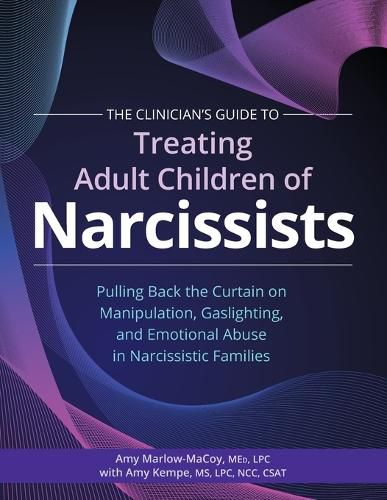Readings Newsletter
Become a Readings Member to make your shopping experience even easier.
Sign in or sign up for free!
You’re not far away from qualifying for FREE standard shipping within Australia
You’ve qualified for FREE standard shipping within Australia
The cart is loading…






"As more therapists are working with clients who are excavating the fallout of having narcissistic parents, this book provides actionable guidance."
-Ramani Durvasula, PhD, author of Should I Stay or Should I Go? and Don't You Know Who I Am?
There is nothing in the world quite like the feeling that someone, somewhere, finally gets it.
Adult children of narcissists have been conditioned to downplay, dismiss, and ignore their experiences. This survival skill of staying below the radar can cause even very skilled clinicians to miss subtle opportunities to connect. It is paramount that clinicians understand the scope of these clients' experiences in order to support their healing-and to avoid the common clinical mistakes and pitfalls that often lead to inadvertently repeating harmful cycles.
Drawing from decades of specialized clinical practice and illustrated with rich client stories, this essential guide provides a thorough walk-through of the assessment and treatment of narcissistic abuse so you can:
Differentiate narcissistic abuse from other forms of family conflict Work through ethical considerations when assessing narcissism Treat complex trauma, grief, and attachment wounds Navigate transference, countertransference, and the person of the therapist
$9.00 standard shipping within Australia
FREE standard shipping within Australia for orders over $100.00
Express & International shipping calculated at checkout
"As more therapists are working with clients who are excavating the fallout of having narcissistic parents, this book provides actionable guidance."
-Ramani Durvasula, PhD, author of Should I Stay or Should I Go? and Don't You Know Who I Am?
There is nothing in the world quite like the feeling that someone, somewhere, finally gets it.
Adult children of narcissists have been conditioned to downplay, dismiss, and ignore their experiences. This survival skill of staying below the radar can cause even very skilled clinicians to miss subtle opportunities to connect. It is paramount that clinicians understand the scope of these clients' experiences in order to support their healing-and to avoid the common clinical mistakes and pitfalls that often lead to inadvertently repeating harmful cycles.
Drawing from decades of specialized clinical practice and illustrated with rich client stories, this essential guide provides a thorough walk-through of the assessment and treatment of narcissistic abuse so you can:
Differentiate narcissistic abuse from other forms of family conflict Work through ethical considerations when assessing narcissism Treat complex trauma, grief, and attachment wounds Navigate transference, countertransference, and the person of the therapist